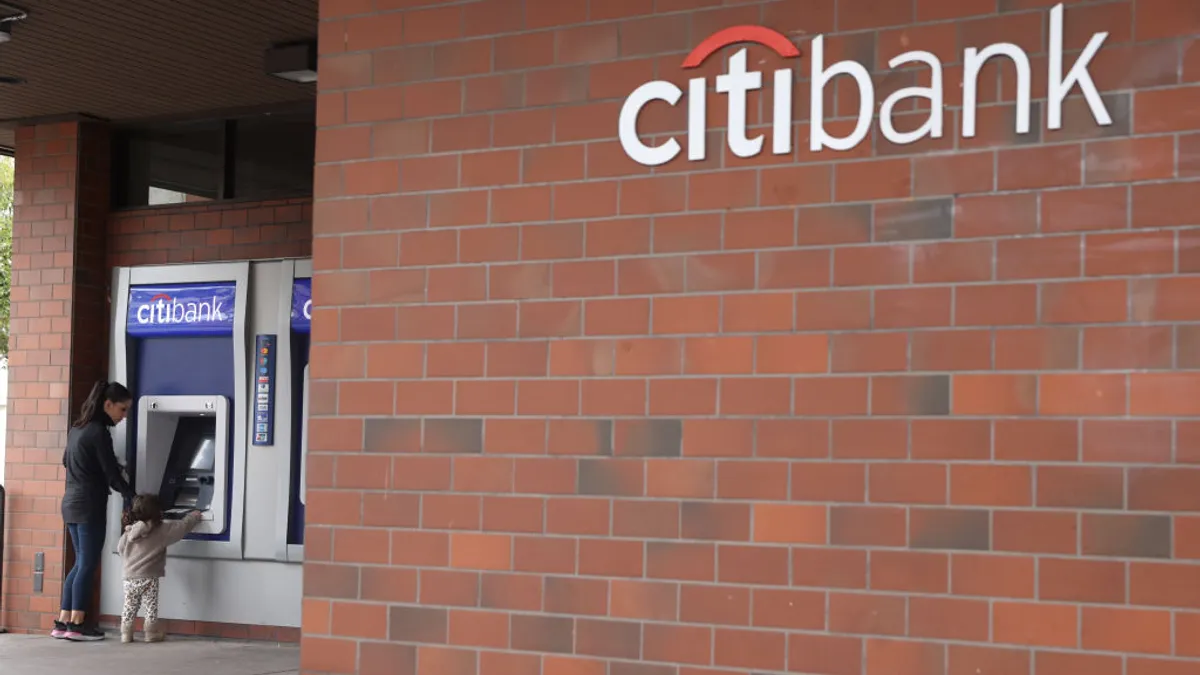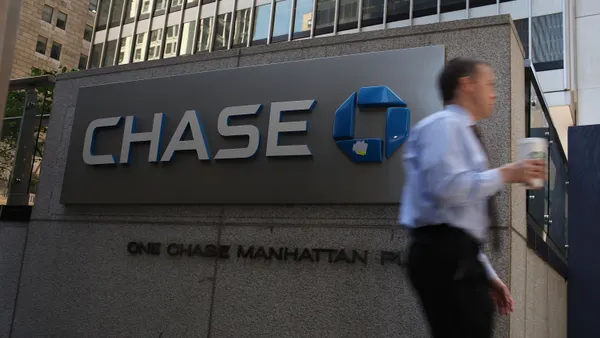Dive Brief:
- A judge in Florida federal court has dismissed a racial bias lawsuit against Citi that accused the lender of discrimination for charging ATM fees for those who don’t bank with minority-owned lenders.
- The lawsuit, filed last year in U.S. District Court for the Southern District of Florida, accused the New York City-based bank of unlawfully granting fee waivers to people using out-of-network ATMs if their accounts were held at nonwhite-owned banks, while imposing fees on those who bank with white-owned lenders.
- Citi sought to dismiss the lawsuit, and Judge Raag Singhal’s March 27 order granted that motion, given “roadblocks to alleging a concrete injury linked to unlawful criteria.” The bank is “pleased with this outcome,” a Citi spokesperson said Thursday.
Dive Insight:
Launched in 2016, Citi’s ATM Community Network allows customers of community banks and nonwhite-owned financial institutions to withdraw cash without a surcharge at Citi branch ATMs. The program also waives out-of-network fees banks may charge customers for using Citi ATMs in the Chicago, Los Angeles, Miami, New York City, San Francisco and Washington, D.C., metropolitan areas.
“Many communities of color lack access to traditional banking services that are the foundation of financial stability and thriving communities,” the bank’s website notes. Waiving out-of-network ATM fees for customers of minority-owned banks and community development credit unions can “alleviate one of the biggest barriers to banking,” the website says.
Citi has removed such fees for 440,000 customers and 28 institutions since 2016, according to the bank’s website.
The plaintiffs, who bank with Citi competitors JPMorgan Chase and Bank of America, called Citi’s program discriminatory. They claimed Citi violated the Civil Rights Act of 1866 and the California Unruh Civil Rights Act by waiving ATM fees for certain customers, while charging those “banking with financial institutions owned by people of the wrong race.”
“Plaintiffs posit that the ‘express goal of the Policy was racial discrimination,’ ensuring ‘cheaper access to ATMs for customers who do business with banks that are owned by, or serve, members of Citi’s preferred races,’” the judge noted in the order.
But Singhal determined the plaintiffs’ case lacked standing.
“Though Plaintiffs cite ‘pocketbook harm,’ the Court does not consider Plaintiffs harmed by the requirement they pay out-of-network fees to utilize Citibank’s ATMs as customers of two of Citibank’s close competitors,” the judge wrote.
If Citi hadn’t launched its ATM program, the plaintiffs would still pay the same fee to access Citi’s ATMs, Singhal pointed out. And entry into the program requires a contractual agreement between Citi and a financial institution, not an individual customer, which the judge said was a “critical” feature in evaluating the case’s standing.
“The barrier for Plaintiffs here is not purportedly discriminatory criteria for Citibank’s policy, but rather that their preferred banking institution has not enrolled,” Singhal wrote. “The decisionmakers for these institutions have agency to decide to join Citibank’s initiative — and thus an essential role in determining whether Plaintiffs could receive the fee waiver — which Plaintiffs are too eager to gloss over.”
Additionally, the plaintiffs’ request that Citi stop waiving fees for customers of minority-owned banks wouldn’t change their situation, the judge said.
Attorneys for the plaintiffs didn’t immediately respond to a request for comment. The plaintiffs had not filed an appeal of the judge’s decision as of Thursday.














